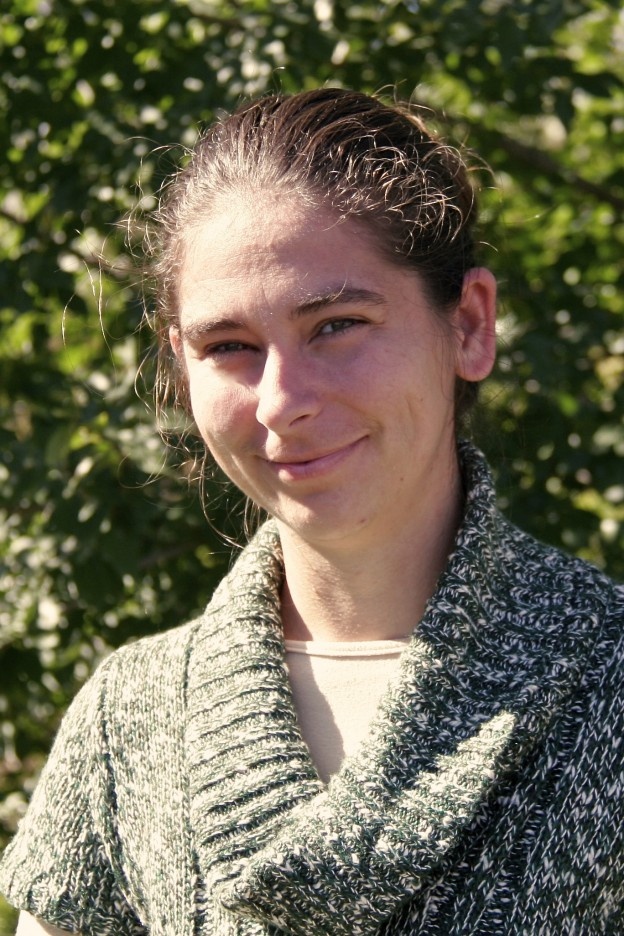Sutherland, K., Kerekes, Zs., Dignard, C., Nowrouzi-Kia, B., Schutt, L., & Larivière, M. (2018, September 5-7). An exploration of trauma-related symptoms among workers in high-risk industrial occupations.13th European Academy of Occupational Health Psychology Conference – Adapting to rapid changes in today’s workplace. Lisbon, Portugal. Book of Proceedings, pp. 341-342.
Nowrouzi-Kia, B., Sharma, B., Dignard, C., Kerekes, Zs., Dumond, J., Li, A., & Larivière, M. (2017). Systematic review: Lost-time injuries in the US mining industry. Occupational Medicine, 67(6), 442-447. https://doi.org/10.1093/occmed/kqx077
Kerekes, Zs., Larivière, M., Dignard, C., & Nowrouzi-Kia, B. (2017, August 29-September 2). Exploring perceptions of the effect of psychosocial hazards on workers’ mental health. 31st Conference of the EHPS – Innovative Ideas in Health Psychology. Padova, Italy. Conference Abstracts, p. 80.
Kerekes, Zs. (2013). Idősödő személyiség és fejlődés [Psychosocial development at the threshold of the senior ages and during this life period]. In J. Kallao, B. Kaszas, & I. Tiringer (Eds.), Időskorúak egészségpszichológiája (pp. 245-262). Medicina Books.
Kerekes, Zs., & Karádi, K. (2013). Időskori kognitív változások mindennapi életvezetéssel való összefüggései [Effects of cognitive changes in senior ages on everyday lifestyle]. In J. Kallao, B. Kaszas, & I. Tiringer (Eds.), Időskorúak egészségpszichológiája (pp. 263-288). Medicina Books.
Kerekes, Zs. (2013). Társas támogatás, szociabilitás, magány, intimitás az időskorban [Social support, sociability, solitude, and intimacy in senior ages]. In J. Kallao, B. Kaszas, & I. Tiringer (Eds.), Időskorúak egészségpszichológiája (pp. 303-336). Medicina Books.
Tiringer, I., & Kerekes, Zs. (2013). Az idős kor pszichoszomatikus vonatkozásai [Psychosomatics and psychotherapy of senior ages]. In J. Kallao, B. Kaszas, & I. Tiringer (Eds.), Időskorúak egészségpszichológiája (pp. 337-362). Medicina Books.
Szentiványi-Makó, H., & Kerekes Zs. (2013). Pszichiátria szakellátás és mentálhigiéné [Psychiatry and mental hygiene]. In E. Kiss & H. Szentiványi-Makó (Eds.), Mentálhigiéné és segítő hivatás (pp. 13-31). Pro Pannónia.
Kaszás, B., Kovács, N., Balás, I., Kállai, J., Aschermann, Z., Kerekes, Zs., Komoly, S., Nagy, F., Janszky, J., Lucza, T., & Karádi, K. (2012). Sensitivity and specificity of Addenbrooke’s Cognitive Examination, Mattis Dementia Rating Scale, Frontal Assessment Battery and Mini Mental State Examination for diagnosing dementia in Parkinson’s disease. Parkinsonism and Related Disorders, 18(5), 553-556. https://doi.org/10.1016/j.parkreldis.2012.02.010
Tiringer, I., Simon, A., Németh, K., Bánki, C., Molnár, E., Szamosi, E., Thaly, E., Kerekes, Zs., Mangel, L., & Veress, G. (2011). A Freiburgi Betegségfeldolgozási Kérdőív rövidített változatának (FKV-LIS) hazai adaptációja. A megerősítő faktoranalízis eredményei [Validation of the Hungarian translation of Freiburg Questionnaire of Coping with Illness-Short Version (FQSI; FKV-LIS). Results of the confirmatory factor analysis]. Magyar Pszichológiai Szemle, 66(4), 631-667. https://doi.org/10.1556/MPSzle.66.2011.4.4
Kerekes, Zs., Révész, G., & Kállai, J. (2011). Elkerülő magatartás és korai tárgykapcsolatokra való visszaemlékezés: Az agorafóbiás élményekkel kapcsolatos fokozott érzékenység alakulása egészséges fiatal felnőtteknél [Enhanced sensitivity to fear-related avoidance among healthy young adults: Agoraphobic experiences and early representation of parental rearing behaviour]. Mentálhigiéné és Pszichoszomatika, 12(2), 125-147. https://doi.org/10.1556/Mental.12.2011.2.2
Kerekes, Zs., Varga, J., & Kállai, J. (2011). Traumatizáló esemény intézményi feldolgozása – a fejlődés esélye [Institutional elaboration of traumatic events – the chances for development]. Pszichoterápia, 20(1), 33-40.
Kalmar, Z., Kovács, N., Perlaki, G., Nagy, F., Aschermann, Zs., Kerekes, Zs., Kaszas, B., Balas, I., Gergely, O., Komoly, S., Schwarcz, A., & Janszky, J. (2011). Reorganization of motor system in Parkinson’s disease. European Neurology, 66(4), 220-226. https://doi.org/10.1159/000330658
Bereczkei, T., Birkás B., & Kerekes Zs. (2010). The presence of others, prosocial traits, machiavellianism: A personality x situation approach. Social Psychology, 41(4), 238-245. https://doi.org/10.1027/1864-9335/a000032
Bereczkei, T., Birkás, B., & Kerekes, Zs. (2009). Altruism towards strangers in need: Costly signaling in an industrial society. Evolution and Human Behavior, 31(2), 95-103. https://doi.org/10.1016/j.evolhumbehav.2009.07.004
Kállai, J., Rózsa, S., Kerekes, Zs., Hargitai, R., & Osváth, A. (2009). A temperamentum alapdimenziójának egyik mérőeszközével, a büntetés és jutalomérzékenység kérdőívvel (SPSRQ) szerzett hazai tapasztalatok [A temperament dependent dimension: Psychometric properties of the sensitivity to punishment and sensitivity to reward questionnaire (SPSRQ) on Hungarian sample]. Mentálhigiéné es Pszichoszomatika, 12(2), 153-172. https://doi.org/10.1556/Mental.10.2009.2.5
Palfi, I., Nemeth, K., Kerekes, Zs., Kállai, J., & Betlehem, J. (2008). The role of burnout among Hungarian nurses. International Journal of Nursing Practice, 14(1), 19–25. https://doi.org/10.1111/j.1440-172X.2007.00662.x
Károssy, K., Kerekes Zs., Horváth, D., Gőcze, P., & Kállai, J. (2007). Association of high and low density serum cholesterol, cognitive performance and emotional well- being in menopausal women. Review of Psychology, 14(1), 13-23.
Bereczkei, T., Birkás, B., & Kerekes, Z. (2007). Public charity offer as a proximate factor of evolved reputation-building strategy: An experimental analysis of a real-life situation. Evolution and Human Behavior, 28(4), 277-284. https://doi.org/10.1016/j.evolhumbehav.2007.04.002
Bereczkei, T., Birkás, B., & Kerekes, Zs. (2007). Önzetlenség idegenek iránt Egy evolúciós modell kísérleti ellenőrzése [Selflessness towards strangers: Experimental supervision of an evolutional model]. Magyar Pszichológiai Szemle, 62(4), 449-473. https://doi.org/10.1556/MPSzle.62.2007.4.2
Kerekes, Zs., & Varga, J. (2007). Fájdalom, fájdalommenedzsment és palliatív ellátás [Pain, pain management and palliative care]. In J. Kállai, J. Varga, & A. Oláh (Eds.), Egészségpszichológia a gyakorlatban (pp. 333-352). Medicina Books.
Birkás, B., Bereczkei, T., & Kerekes, Zs. (2006). Generosity, reputation and costly signaling: A preliminary study of altruism toward unfamiliar people. Journal of Cultural and Evolutionary Psychology, 4(2), 173-181. https://doi.org/10.1556/JCEP.4.2006.2.5
Kállai, J., Kerekes, Zs., Osváth, A., Makany, T., & Jarai, R. (2003). Korai navigációs tapasztalatok valamint a szorongás és félelmek hatása nők és férfiak tájékozódási stratégiáinak alakulására [Early navigational experiences and the effect of anxiety and fear on the development of orientation strategy of women and men]. Magyar Pszichológiai Szemle, 58(3), 319-340. https://doi.org/10.1556/MPSzle.58.2003.3.1

